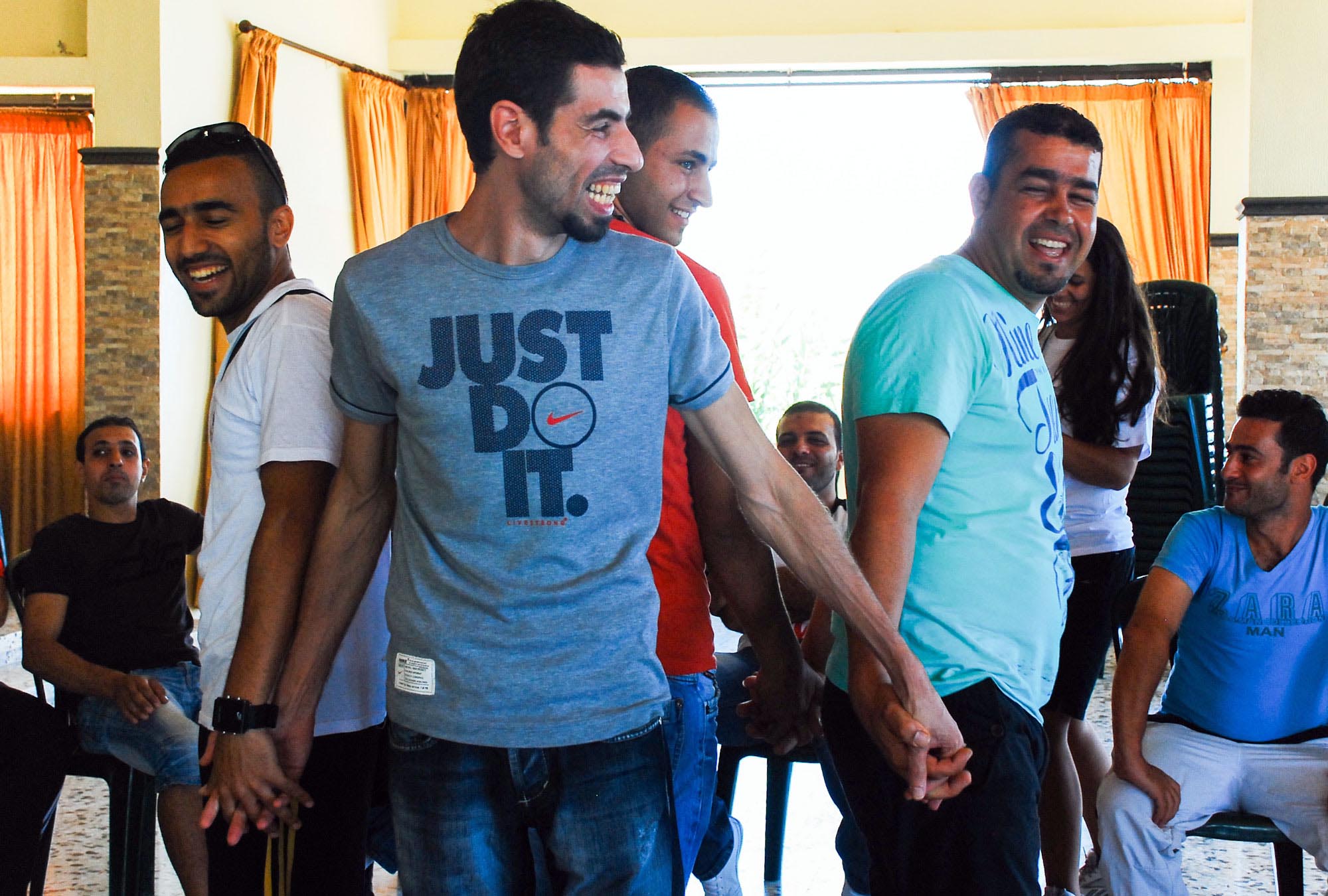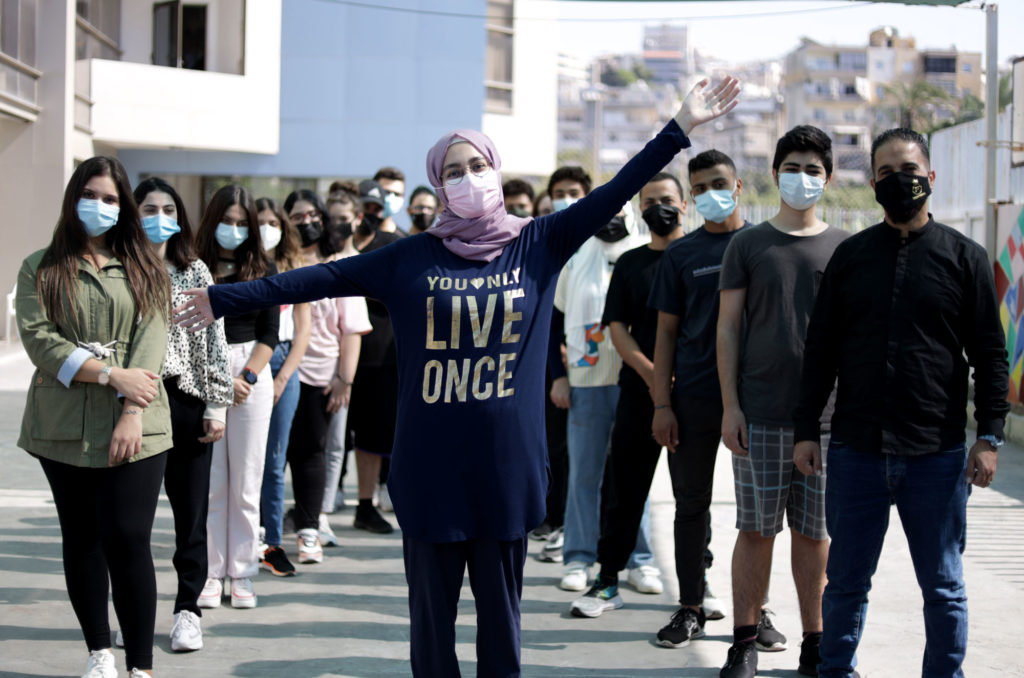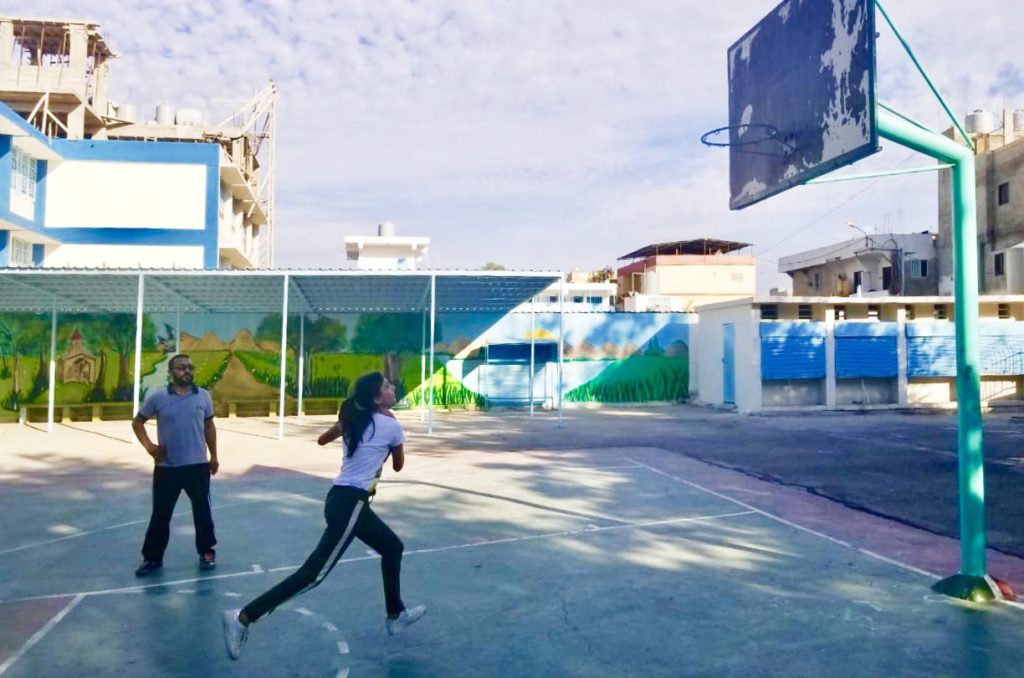COMMUNITY
Sports Help Bridge Sectarian Divides in Lebanon
Nov, 2013
It’s a beautiful day of early fall in Minieh, a seaside town in the north of Lebanon. At 10:00, Mohammad Tamer is the first of the 24 soccer coaches to show up for Anera’s Conflict Mitigation workshop. He is wearing his nicest sport outfit and brought some business cards with him.
Mohammad Tamer is a soccer coach in the hillside neighborhood of Tripoli, known as Jabal Mosen. He is Alawite, a minority community in Lebanon. Since the Lebanese civil war. his community has witnessed violent clashes with rival factions from neighboring Bab El-Tebbaneh. With the conflict in neighboring Syria, which is ruled by the Alawite Assad family, violence has escalated between pro- and anti-regime factions, leaving more than one hundred dead and thousands more wounded.
In Bab El-Tebbaneh, Omar al-Wassim trains the Najme team. He has lost several relatives in those clashes and understands the human cost. “The conflict with Jabal Moshen is something deep-rooted. It’s bigger than me, bigger than us,” he explains.
But on this day in the seaside town of Minieh, Mohammad and Omar sat down next to each other.
Both Lebanese sportsmen were meeting with 22 other soccer coaches from the nearby Palestinian camps of Nahr El Bared and Beddawi. Although they all live within a few kilometers of each other, most had never met.
The first contact is not always easy. The security situation in northern Lebanon is increasingly tense and prejudices based on sectarian identities are common practice. “At first, I heard some people calling me names," Mohammad says. "I looked away and pretended I didn't hear.”
Anera has brought them together through a pilot project, Sports for Peace, which is funded by USAID’s Office of Transition Initiatives (OTI). The aim of the project is to bridge the gap between conflicting communities through sports.
The 24 coaches worked in groups of five to find solutions to incidents they face daily in their coaching jobs. They used interactive games and other techniques to analyze the roots of conflict, which often found them reverting to childhood. Building on group activities and good will, as well as an emphasis on sport values, the atmosphere relaxed significantly.
Mohammad, for one, could feel the tensions easing: “I really had fun today. I felt like we were all kids again.”
Anera has been working in the area of sports since 2010, including the rehabilitation of sports facilities, reviving tournaments, providing capacity building sessions for sports clubs and improving access for children in the refugee camps. Anera sports program manager Jackie Atwi explains, "Sports has been a cornerstone of Anera's development work in Lebanon. Sports is a powerful tool to promote educational values, dialogue and coexistence. Sports also gives people a release from their difficult realities."
A month later, the coaches gathered again for workshops on sports ethics, teaching skills and other techniques that are led by Lebanon’s reknowned coach Jamal Taha. No matter what their differences, the coaches are unanimous in their admiration for the celebrity who used to play with Lebanon's national soccer team. “We’re learning a lot from Captain Jamal on how to build an atmosphere of trust and respect on the soccer field,” Omar explains.
Bridging conflicting communities is a lengthy process, but tensions ease little by little as the coaches meet and focus on common sports issues and objectives. They soon feel that they no longer represent a community, nationality or competing club. Now they see themselves as equals who face similar challenges and share common goals. “I got to meet some great people I would never have known before and I got to share a lot with them,” Mohammad explains.
That newfound comradeship has gone beyond the workshops. Recently, the coaches decided to meet once a week on a soccer field outside of Beddawi to play mini-soccer matches among themselves.
In these difficult times, their enthusiasm brings optimism. Mohammad explains. “Sports in Lebanon is the only thing that can bring together all parties and we really enjoy playing together – Lebanese and Palestinians from Bab El-Tebbaneh and from Jabal Mohsen – that is the power of sportsmanship!”




